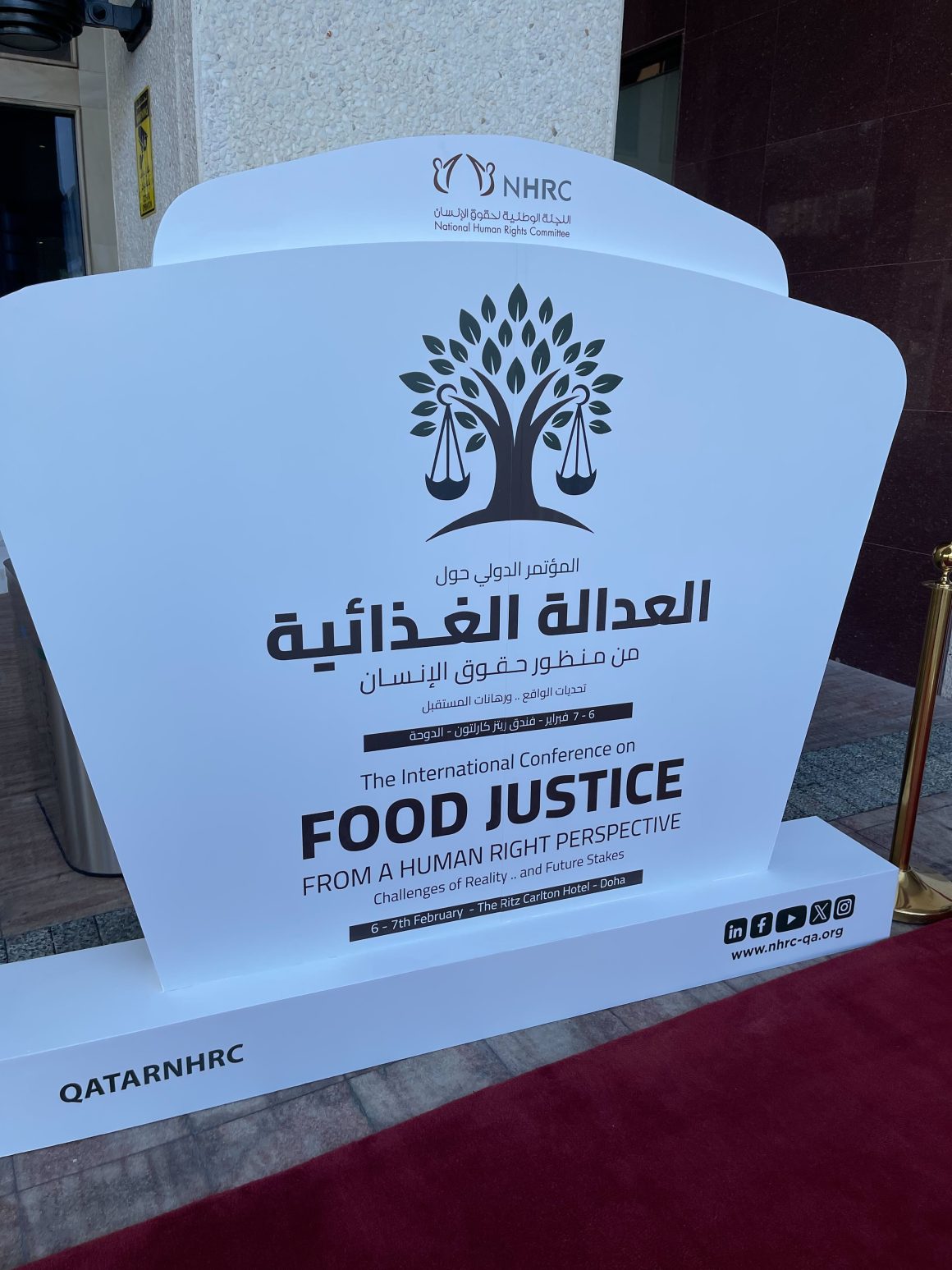The International Conference on Food Justice in Qatar runs from February 6-7 and brings together global experts to address international food insecurity.
The National Human Rights Committee (NHRC) held a pivotal two-day conference on Tuesday in Qatar under the auspices of Qatar’s Prime Minister and Foreign Minister, Sheikh Mohammed bin Abdulrahman bin Jassim Al Thani in a concerted effort to tackle the pressing issue of global food insecurity.
Entitled ‘The International Conference on Food Justice from a Human Rights Perspective’, the conference was held in cooperation with the Office of the United Nations High Commissioner for Human Rights, the Global Alliance of National Human Rights Institutions (GANHRI), the Office of the United Nations Development Programme, the International Fund for Agricultural Development and the League of Arab States.
The conference saw an array of panel sessions held to discuss solutions for global food insecurity with participants from all around the world.
Renowned experts in the field, such as Qatar’s Maryam bint Abdullah AI Attiyah – the NHCR’s chairperson and president of the GANHRI, spoke during the opening session.

Other opening keynote speakers included Qatar’s Municipality Minister Abdullah bin Hamad bin Abdullah Al Attiyah and the Gulf Cooperation Council’s secretary general, Jassim Bin Mohammed Al Budaiwi, as well as the UN deputy high commissioner for human rights, Nada Al Nashif, and the Arab League’s assistant secretary general, Haifa Abu Ghazaleh.
The technical representative and head of the Qatar office for the UN Development Programme, Biplove Choudhary, also gave remarks during the opening session. He hailed the timely nature of the conference.
A conference during a critical time
The NHRC’s conference coincides with reports from the UN’s Food and Agriculture Organization forecasting that by 2030, almost 600 million people will be “chronically” undernourished.
For the NHRC’s vice chairman, Mohammed bin Saif Al Kuwari, the conference provides Qatar, and the global community, with a good opportunity to discuss worrying trends in world hunger.
Since October 7, the Integrated Food Security Phase Classification (IPC) reports that Israel’s indiscriminate onslaught of the Gaza Strip has left at least 2.2 million Palestinians battling an imminent risk of famine.
The IPC reported that the situation was especially dire in the enclave’s northern governorates, where 45 percent of Palestinians was experiencing “emergency” food insecurity levels. A further 30 percent of the population was experiencing “famine”, while 25 percent was in the ‘crisis” food insecurity phase.
Speaking to Doha News, Al Kuwari said the Gaza issue was very important for the NHRC.
“A lot of people are suffering from hunger,” he added.
The NHRC’s vice chair said that beyond discussions, the committee will ensure that by the end of the conference, “we will collect all of the recommendations from the speakers and the audience.
“And, of course, we will send these recommendations to the government, international organisations and human rights organisations to implement these recommendations.”
‘Conference about action’
In addition to inducing famine, Israel’s war on Gaza has destroyed almost all the bakeries in the enclave and limited the entry of fuel, making it difficult for many to cook. Some Palestinians in the Strip have no choice but to eat animal fodder just to survive.
Palestinians are also cut off from freshwater supplies. According to the UN’s humanitarian office, only one out of three drinkable water pipelines supplied from Israel to Gaza remains functional. Worse still, Northern Gaza has no access to clean water.
Speaking to Doha News at the NHRC’S international conference, Qatar’s Lolwah bint Rashid Al Khater, the nation’s Minister for International Cooperation, stressed access to healthy food was the right of every human being.
The Qatari official said that “regardless of their background, religion, race – it doesn’t matter. What matters is that we are human beings – everyone has this right.”
Echoing the NHRC’s vice chairman, Al Khater also said there was a need to translate the important dialogue from the conference into implementable plans. Beyond being a conference about food justice, she added that it was also about “action.”
Sharing her nation’s efforts in alleviating the suffering of Palestinians in Gaza, she added that Qatar has, “started an air bridge on 16th of October, until this very day.”
Al Khater added that through this channel, aid has been transported continuously to reach the people of Gaza. However, she emphasised the global duty placed on the international community as civilians continue to suffer in Gaza.
“All of us need to come collectively to do something. States, NGOs, individuals and you – journalists.”
She added that journalism which amplifies the dire straits experienced by innocent Gazans encourages governments to swiftly act to eradicate their suffering.

![[Doha News]](https://dohanews.co/wp-content/uploads/2024/02/IMG_8808-scaled.jpg)





